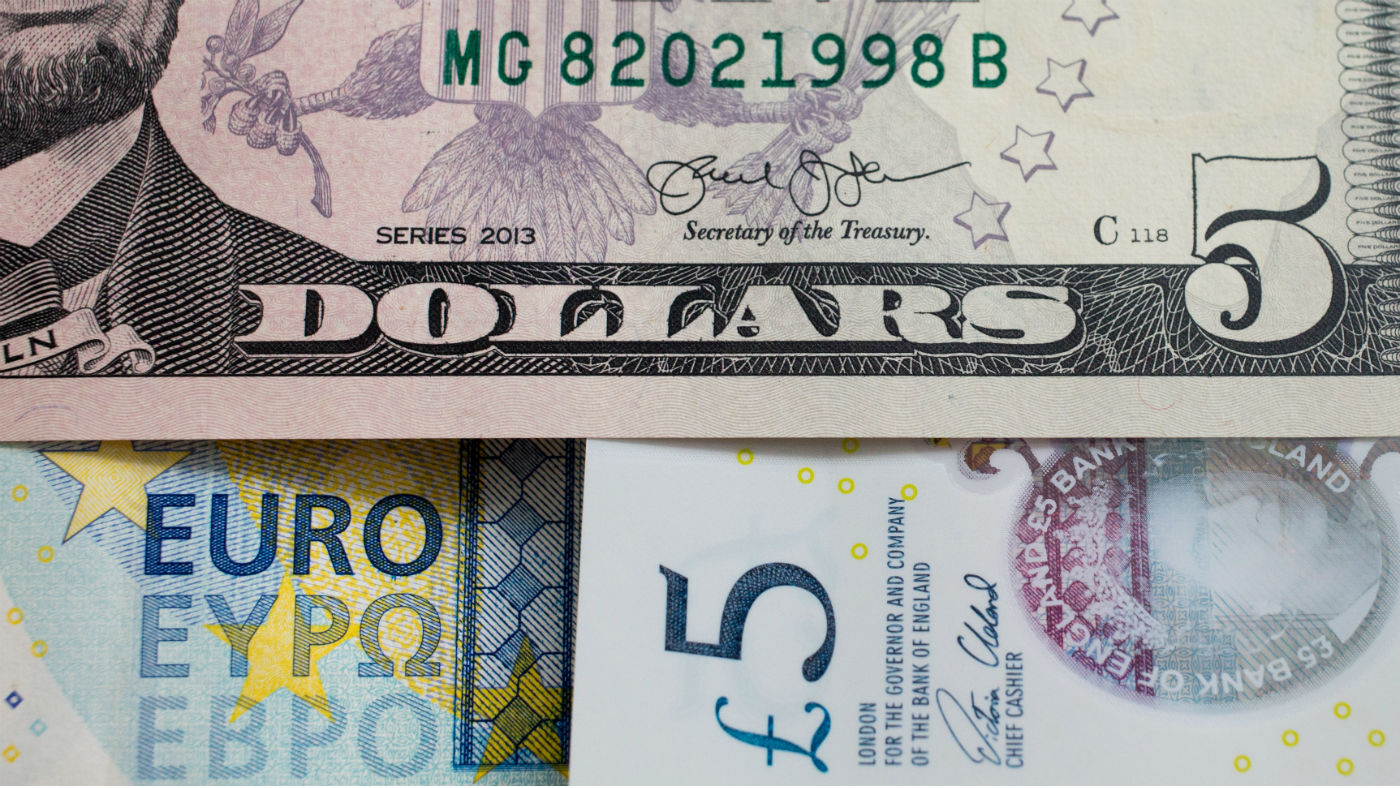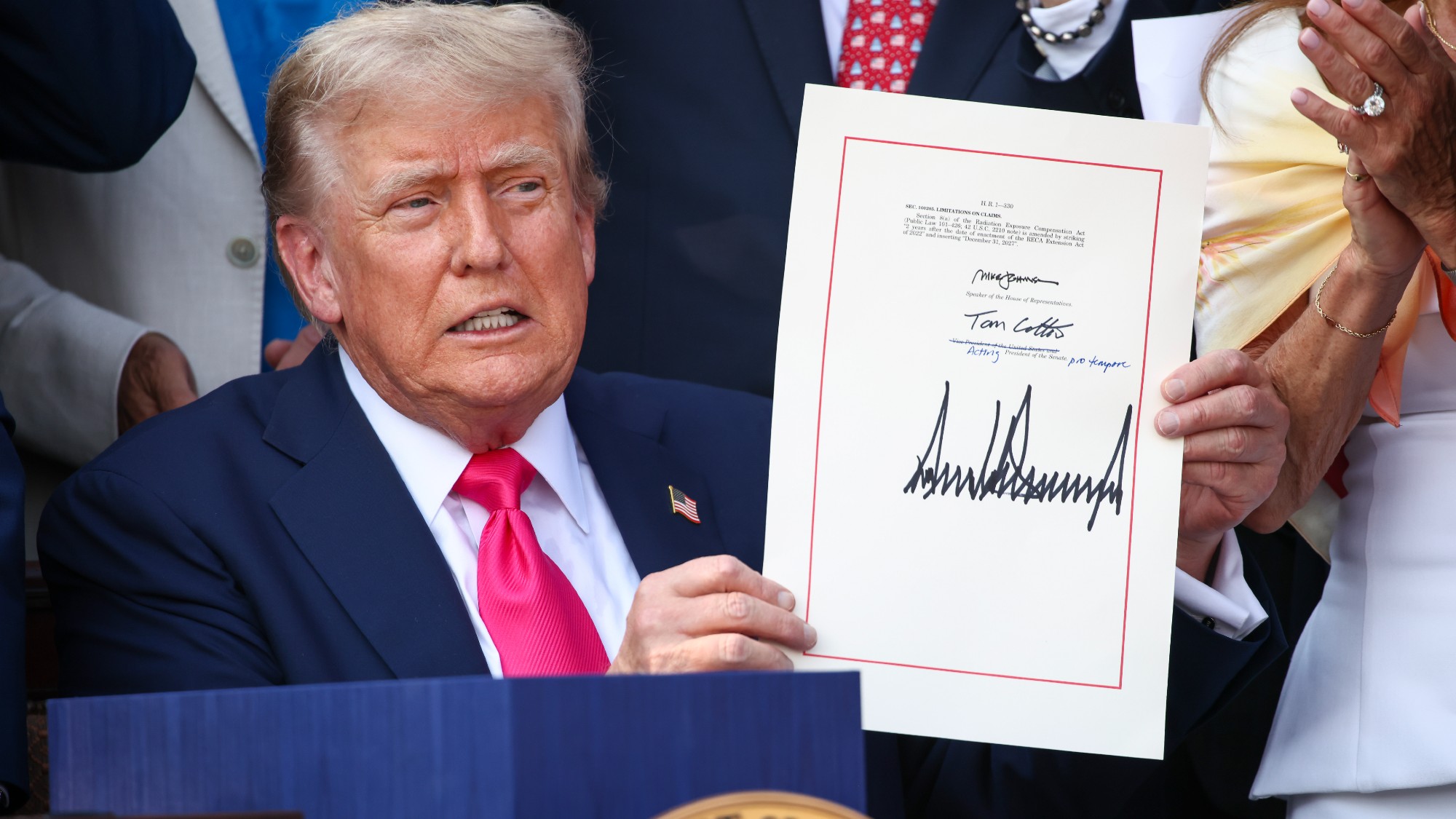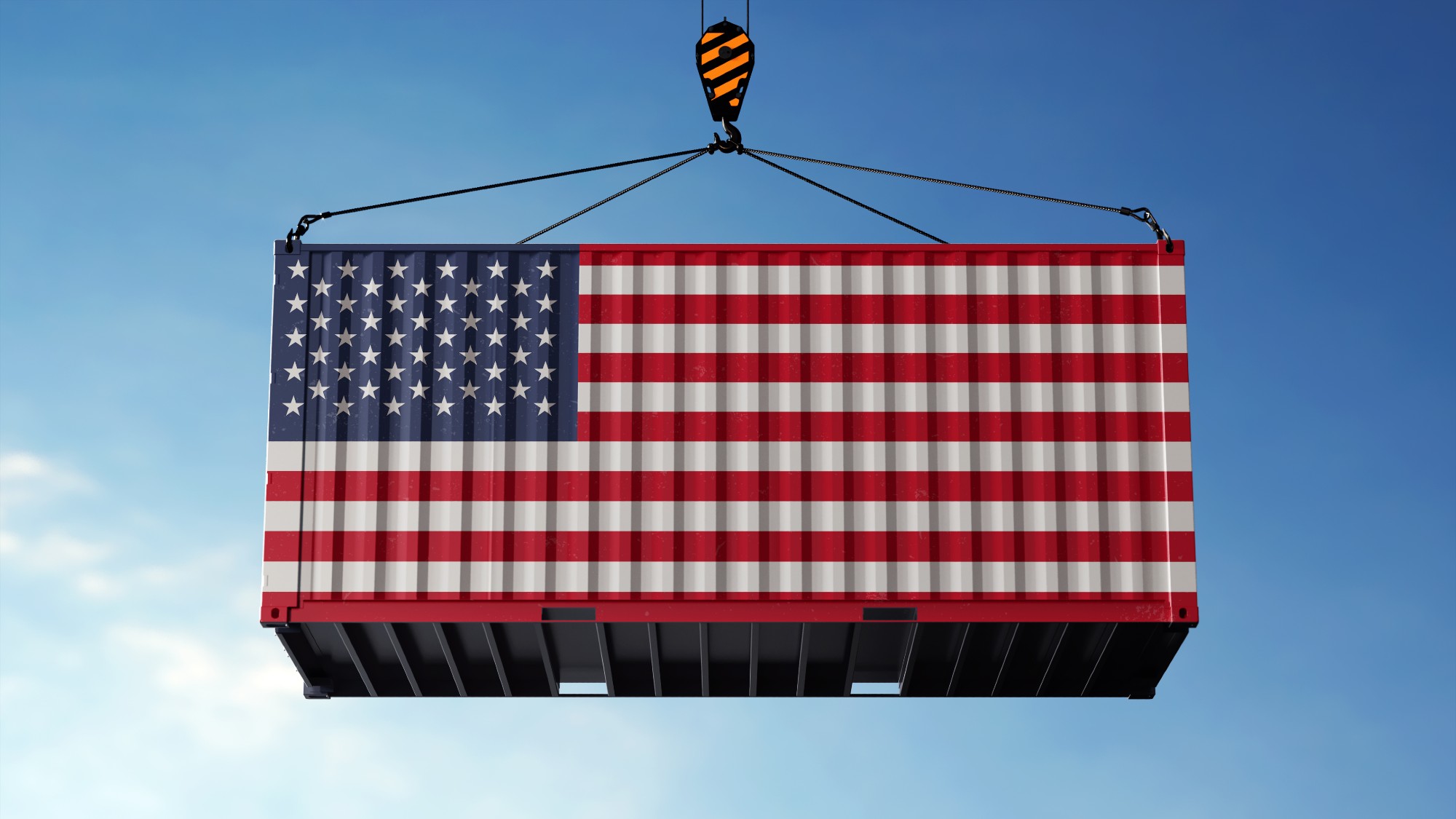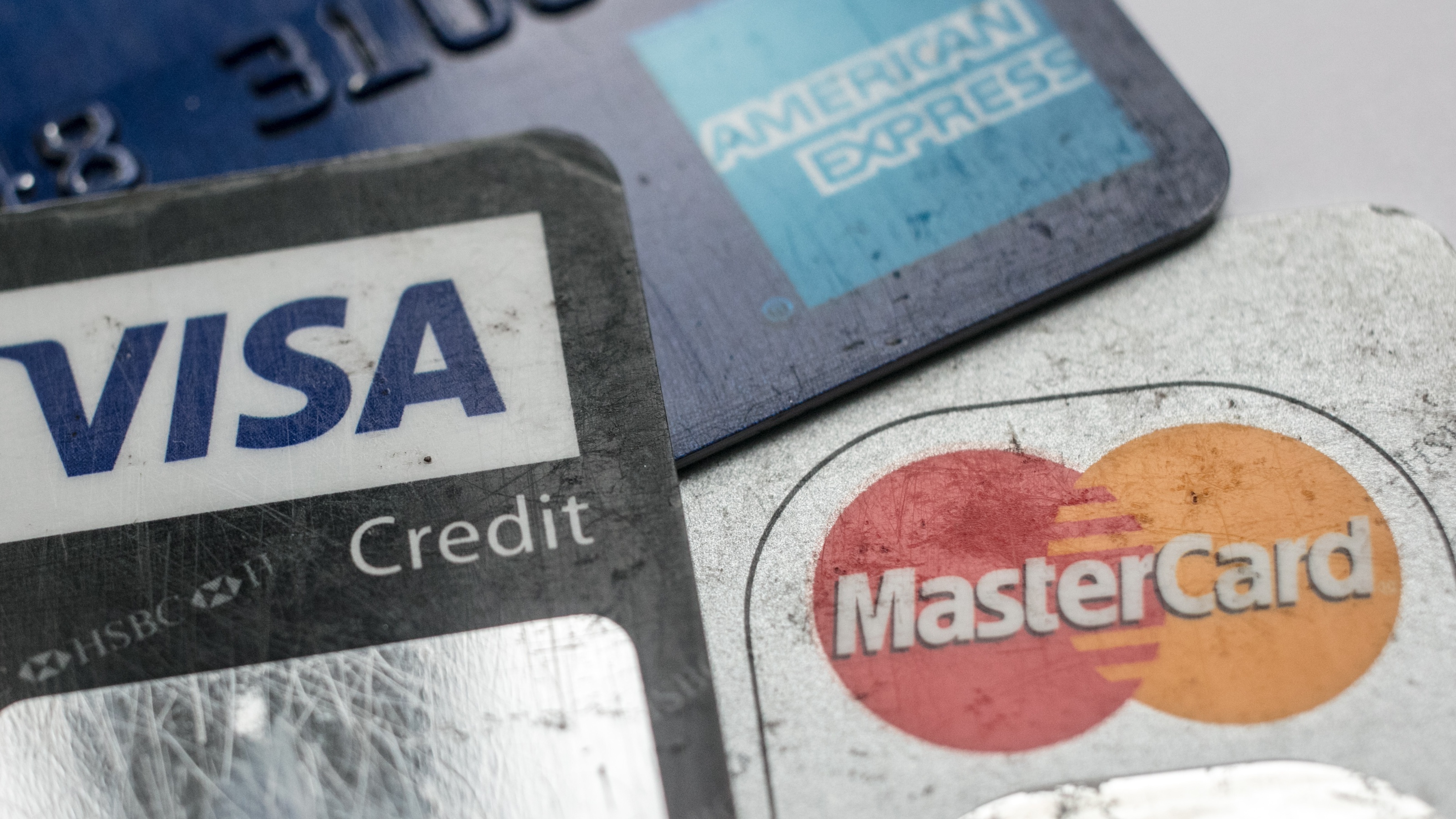Does Trump want to wage a global currency war?
US president has warned EU attempts to hold down euro exchange rate will be deemed provocation

A free daily email with the biggest news stories of the day – and the best features from TheWeek.com
You are now subscribed
Your newsletter sign-up was successful
Donald Trump has set the stage for a currency war between the EU and US after the outgoing European Central Bank President Mario Draghi said he would be open to boosting monetary stimulus if economic conditions in Europe do not improve.
His remarks earlier this week could mean interest rate cuts or the printing of new money to buy assets such as government bond. Yet Trump quickly accused Draghi of deliberately trying to weaken the euro, thereby “making it unfairly easier” for the eurozone to compete against the US.
“It was not the first time Trump has blamed currency manipulation overseas for a strong dollar that raises the cost of US exports,” says the Sydney Morning Herald. “He has already become unique among recent American presidents in a shift away from the ‘strong dollar’ policy of his predecessors.”
The Week
Escape your echo chamber. Get the facts behind the news, plus analysis from multiple perspectives.

Sign up for The Week's Free Newsletters
From our morning news briefing to a weekly Good News Newsletter, get the best of The Week delivered directly to your inbox.
From our morning news briefing to a weekly Good News Newsletter, get the best of The Week delivered directly to your inbox.
“It’s usually not hard to tell when a war has started: One nation crosses another’s border with soldiers, tanks, and planes,” says Peter Coy in Bloomberg Businessweek. “Currency wars are tougher to call, partly because there isn’t even a clear definition of what they are”.
The phrase “currency war” was first famously used by Brazilian Finance Minister Guido Mantega back in 2010 when major central banks began debasing their currencies by slashing interest rates to near zero and printing money to buy financial assets.
“The idea was that looser monetary policy was, in effect, a ‘beggar thy neighbour’ approach,” says John Stepek in Money Week.
“Your currency gets weaker, so your products get cheaper relative to those of other countries, and so you benefit at the expense of other nations around the world. It was viewed as a modern-day version of tariffs – a repeat of the protectionist spiral we saw after the Great Depression,” he writes.
A free daily email with the biggest news stories of the day – and the best features from TheWeek.com
This an accusation that has long been levelled at the eurozone, which critics say allows Germany to keep the currency undervalued to lock in a beggar-thy-neighbour trade advantage over southern Europe.
Ambrose Evan-Pritchard in the Daily Telegraph says Trump’s White House “has had enough of this and the battleground is over the currency”.
Nor is it just the EU that has drawn the ire of the president over accusations of exchange rate manipulation. One of Trump’s main attack lines during the 2016 presidential campaigns was the China was deliberately keeping the yuan low in order make foreign exports cheaper. It formed the basis for his ongoing trade war with Beijing.
Yet “Trump’s argument that China is manipulating its currency is even weaker than his case against Europe,” says Coy. “Far from pushing down the value of the yuan, the People’s Bank of China has been countering market forces to slow its decline.”
“The fear, however, is that Trump's anger over the currency shifts could also help fuel further trade actions, including tariffs he has threatened to impose on imported cars and parts from the EU but put on hold for 180 days,” says the Sydney Morning Herald.
-
 Political cartoons for February 18
Political cartoons for February 18Cartoons Wednesday’s political cartoons include the DOW, human replacement, and more
-
 The best music tours to book in 2026
The best music tours to book in 2026The Week Recommends Must-see live shows to catch this year from Lily Allen to Florence + The Machine
-
 Gisèle Pelicot’s ‘extraordinarily courageous’ memoir is a ‘compelling’ read
Gisèle Pelicot’s ‘extraordinarily courageous’ memoir is a ‘compelling’ readIn the Spotlight A Hymn to Life is a ‘riveting’ account of Pelicot’s ordeal and a ‘rousing feminist manifesto’
-
 What would a credit card rate cap mean for you?
What would a credit card rate cap mean for you?the explainer President Donald Trump has floated the possibility of a one-year rate cap
-
 How will Trump's spending bill impact student loans?
How will Trump's spending bill impact student loans?the explainer Here's what the Republicans' domestic policy bill means for current and former students
-
 8 ways Trump's bill will change your taxes
8 ways Trump's bill will change your taxesThe Explainer The 'big beautiful bill' was recently signed into law. Here's what it might mean for your wallet.
-
 What is the CFPB and how does it protect consumers?
What is the CFPB and how does it protect consumers?the explainer The Consumer Financial Protection Bureau has had its work stymied by the Trump administration
-
 What product prices could tariffs affect?
What product prices could tariffs affect?The Explainer President Trump's tariff plan may raise the cost of food, gas, pharmaceuticals and more
-
 What exactly are tariffs and how do they work?
What exactly are tariffs and how do they work?The explainer Refresh your understanding ahead of Donald Trump's promise to levy heavy tariffs once he's back in office
-
 Brits keeping 21 million ‘money secrets’ from friends and family, survey reveals
Brits keeping 21 million ‘money secrets’ from friends and family, survey revealsSpeed Read Four in ten people admit staying quiet or telling fibs about debts or savings
-
 London renters swap cramped flats for space in suburbia
London renters swap cramped flats for space in suburbiaSpeed Read New figures show tenants are leaving Britain's cities and looking to upsize